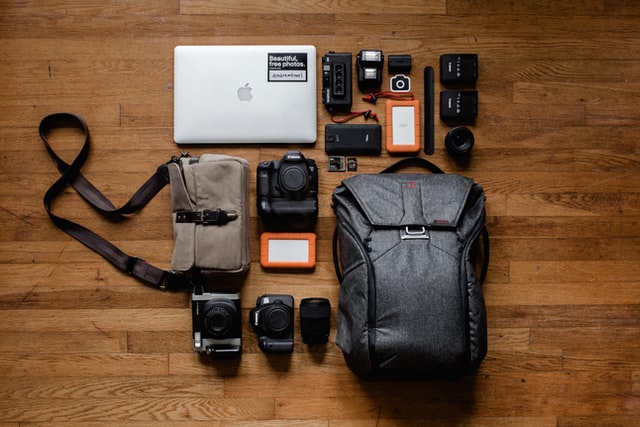Travelling the world is a dream of many people, yet only some of them take action and shift from dreaming to doing. Some think that in order to start travelling they need to make a fortune, while others take a different approach and find opportunities for budget travels. One of the ways of slaking the wanderlust is taking part in international student exchange programs. Once you’ve decided to study abroad, tips and advice on where to start and what to do are never one too many. Our list of tips for international students is an insightful guide for those who are just considering the opportunity and those who have already decided to take advantage of it.
Before you go:
1. Take care of the paperwork
Make sure that you have all the necessary applications, forms and documents neatly arranged. A good idea is to keep copies of all the documents on a flash drive or a cloud service, just in case. Also, leave the copies of your documents to your family or a trusted representative for the emergency situations.

2. Learn about the laws and traditions
Before you leave to spend a semester or two abroad, make sure you fully understand what are the laws and norms of behavior in the chosen country, as while you are staying there you are subject to its laws.
3. Learn the language
Even if improving your knowledge of a foreign language is not one of the key points of your travelling plans, picking up a few essential words and phrases will definitely come in handy. Even if you find them difficult to spell, some phrases can break the ice and start a friendly conversation.
4. Save money
The more money you save before the trip the better, as foreign travels always call for unexpected expenses, and it is better you have a decent amount of money on your bank account to feel yourself confident while you are far from home. Another important financial arrangement to make is to visit your bank and ascertain that your debit card will work properly while you are abroad.
5. Plan some trips beforehand
Do a little research and find out some places of interest which you would want to visit. If your plans involve visiting some events or travelling during holiday seasons, a good idea is to make reservations, book hotels and buy entrance tickets in advance.
6. Be independent
Travelling alone may be intimidating and it sure is a bit difficult, but don’t let the lack of a company make you stay home. Having a relationship should not hold you back from having an experience of a lifetime abroad, so make sure that the decision to study abroad is only yours.
7. Be selective when packing
Although the length of such a trip may incite you to pack everything you own into your suitcase, you should keep in mind that whatever you pack you’ll have to carry through all the airports, railway and bus stations. Hence, the main criterion for a thing to be packed is its necessity.
When you’re there
1. Take as many photos as possible
Don’t rely on your memory, no matter how excellent it is. Take photos of every detail and every trifle, everything that may seem ordinary, as when you get home you’ll want to share your impressions with the close ones, and definitely will want to recall all the good things that happened to you during the trip.
2. Be open-minded
One of the popular exchange student tips is to keep an open mind. Although some things which are common in a foreign culture might be different from what you are used to, at times even shocking, they are part of the unforgettable experience.
3. Make friends, take opportunities
Although the ambience of a foreign country can make you feel homesick and reach for people from your country, you should resist such a temptation. The main point of all the international exchange programs is to establish international friendship, and it is an enriching experience for the personal growth of the alumni and a potential opportunity for further international connections and projects. While you are staying abroad, your foreign friends can tell you some tips on how to study, advice on where to go, tell you more about the traditions of a country and make you see the country as no tourist guidebook has ever shown it. Moreover, what seems like a temporary companionship at first may grow into a lifelong friendship.
4. Don’t forget to study
The process of exploring a new country and communicating with new friends can make you forget the reason why you came to another country in the first place. Determine your priorities, and if the primary reason for your trip was to make as many friends as you can and live through every possible experience that the country has to offer, leave your academic responsibilities to professionals, such as pro-papers.com, and take the most of your foreign opportunities.
5. Keep track of your expenses
Trying and buying new things sure is exciting, but you don’t want to end up broke and spend the precious and limited time abroad in attempts to earn more money. When you study abroad, one of the useful tips to save you money would be to take a closer look at thrift shops. Some things you will only need while you are abroad, hence, there is no need to overpay and buy new goods. You can also ask around on campus and see if you can buy the necessary textbooks off hand.
6. Don’t forget you’ll have to get back home
No matter how welcomed you’ll feel and how much you’ll get used to a life in a new setting, it is still temporary. Keep in mind that your time there is limited, so if you feel like taking a nap instead of sightseeing, go sightseeing.
7. Think of the souvenirs
Your family and friends surely deserve at least a little something as a gesture of appreciation and courtesy. Think of something authentic and unique, something that can’t be found in your homeland, yet don’t forget about the luggage limitations which you’ll have to adhere to sooner or later.


















